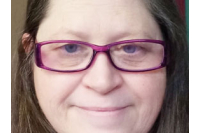An Eye-Opener
I watched, horrified by the sight of the “island” of trash that floats in the sea, brought together by the common thought of “out of sight, out of mind”. The show was 60 Minutes and the story was talking about the global issue of plastic waste that is choking our world’s oceans. It was an eye-opener for me seeing how a product so versatile was becoming more of a detriment. Just as water flows from rivers and streams to its final destination of the vastness of the sea, so too does the endless supply of plastic.
A Recycler at Heart
Oregon has always swelled with a certain amount of pride for being a state at the forefront of recycling. In 1971, Oregon was the first state to introduce the Bottle Deposit Bill, which allowed consumers to return their used aluminum cans, plastic bottles, and glass bottles for cash in response to the growing litter problem. Sadly, only ten states since then have similar bottle bills. Growing up in The Dalles, Oregon, my parents were always cognizant of waste. My father was amazing at recycling different items and creating them into something new. He took a discarded shampooer and turned it into a waxer/buffer dispenser for their cleaning business. Something always had a purpose, or repurpose in this case. He passed that along to me.
So Much Waste
As a former Merchandise Control Associate for Kmart, it was my job to return the merchandise to its proper destination. Sadly, many products simply ended up in the trash compactor—perfectly good bicycles that just needed a small repair, plastic containers, books that the publisher no longer wanted or plants that withered under the heat of the sun. When allowed, I started to keep some of those items to see if they could be repurposed. The plastic plant trays could serve as a starter tray for new plants or the plastic juice bottle that could become a home for an aquarium plant or a new light, or even the plastic box the cell phone cover came in could be a new shadow box. That Dutch Brothers’ cup can be a place to store your paintbrushes (the lid is perfect to allow the handle to poke through). The saddest part of my job was the thousands of dollars I threw away every growing season because they couldn’t survive the elements. I envision a miniature greenhouse that allows retail suppliers the ability to shade the plants when needed and keep them warm in the cold.
A New Way of Thinking
A. The key to keeping our oceans free from the discarded remnants of human activity is to find new purposes for old things. We need to find a new chemical composite for plastics that are versatile in their uses—that can be melted down into a wholly new product. Let’s face it, we will never get away from plastic, especially with the onset of a global pandemic. Plastic can offer a way to keep things sterile and disposable.
B. We need to stop expecting other countries to handle our trash problems. Companies have got to get away from simply discarding perfectly useable products because they don’t want to deal with it. As a society we need to get away from our throw-away mentality and take just a few minutes to recycle our waste with the knowledge it will become something new again.
C. Governmental funding for companies that are into research and development of new ways to reuse and recycle plastics currently in our oceans and waterways as well as creation of biodegradable materials.
Without a new way of thinking, we are destined to drown under the weight of our own trash.
Works Cited:
Essay by: Nicole Marie Cowart
University of Phoenix

